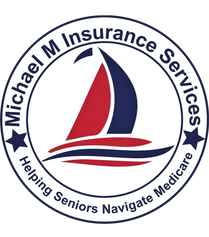It’s that time of year again.
Full mail and email inboxes. Obnoxious phone calls and texts. Mindless advice from
well-meaning friends and relatives. Never-ending TV and radio ads. But, should you consider changing your Plan?
It can feel like the Medicare Annual Enrollment Period (AEP) which runs from October 15 to
December 7 is just one big stress ball of noise and confusion. Every year, it’s the same story: your mailbox fills with offers for Medicare Advantage plans, Medigap promotions, and updates from your current provider. Meanwhile, your phone rings with unsolicited calls, all promising the perfect plan for you.
So, what should you do? Should you really change your plan? Or are you just being swept up in the annual chaos?
It’s easy to get lost in the shuffle of offers, commercials, and unsolicited advice. But before you
make any decisions, it’s important to stop and think:
What’s actually best for your needs?
What’s actually best for your needs?
At its core, AEP is about evaluating your Medicare plan options to make sure you’re getting the best coverage at the best price. But with all the noise, it’s easy to feel overwhelmed.
Here’s the thing: You don’t have to make a hasty decision.
Instead, ask yourself these key questions before diving into any changes:
Why This Time of Year Feels Like a Medicare Frenzy
1. Are You Happy with Your Current Coverage?
Before you start shopping around for a new plan, take a moment to evaluate your current situation.
- Are your doctors still in-network?
- Do you have the prescription coverage you need?
- Have your healthcare needs changed?
If your health has been stable and your current plan is meeting your needs, there might be no reason to make a change. But if you’re finding that you’re paying more than necessary or your plan no longer fits your situation, it might be time to explore other options.
2. Do You Understand the Plan Changes for 2025?
Every year, Medicare plans change—whether it’s premium increases, changes in drug
formularies, or updated coverage networks. You might get an Annual Notice of Change (ANOC) from your current provider, outlining what’s different for the coming year.
- Are you aware of any changes to your plan’s benefits or costs?
If you haven’t reviewed your ANOC yet, now is the time. Understanding these changes can help you make an informed decision about whether your current plan is still the best choice or if you need to consider something new.
3. Are You Considering a Switch to Medicare Advantage?
Medicare Advantage (Part C) plans have gained popularity in recent years because they
combine the benefits of Original Medicare with added perks like vision, dental, and wellness programs all for a potentially lower monthly premium. But not all Advantage plans are
created equal.
- Is your current Medicare Advantage plan still meeting your needs?
Some people find they’re paying too much for limited coverage or network restrictions. While a Medicare Supplement plan may offer broader coverage and fewer network limitations, the low-cost appeal of Medicare Advantage is tempting for those on a fixed income.
4. Can You Afford the Changes?
As with any insurance, it’s crucial to consider the costs involved. Medicare Advantage plans may have low or $0 premiums, but they often come with copayments and out-of-pocket limits that could add up over the course of the year.
- What’s your budget for health insurance? Take a moment to assess what you’re paying now for premiums, deductibles, and copays. You don’t want to end up paying more just to switch to a new plan that might not even meet your needs.
5. Are You Getting the Right Advice?
If you’ve been listening to friends, relatives, or even TV commercials, you might be getting advice that’s not tailored to your situation.
- Your Trusted Advisor can guide you through with unbiased advice. At the end of the day, if you’re happy with your plan it’s probably your best option.
6. Is There a Better Option You Haven’t Considered?
Maybe it’s time to consider alternatives. If you haven’t looked into High Deductible Plan G, Medicare Advantage with prescription coverage, or Medigap in a while, it’s worth doing a comparison. Each year, Medicare Advantage plans introduce new benefits, and Medigap plans might offer better coverage at lower costs if you’ve been healthy.
- Are you open to looking beyond what you know?
A little research can help you discover options that may save you money or offer better coverage than what you’re currently paying for.
Final Thoughts: Take Your Time
As you approach the AEP and evaluate your Medicare options, remember: this isn’t about rushing into a decision or getting caught up in the latest ad.
It’s about taking the time to review your needs, understand your options, and ask the right questions. You don’t have to make a change if your current plan is still the right fit. But if it’s time
to reassess, you have plenty of resources at your disposal to help guide you.

